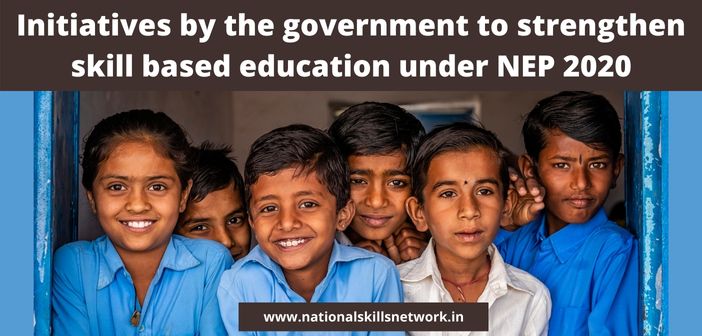Under the name of the “Skill India Mission (SIM),” the Indian government has started a number of convergence initiatives throughout the skill ecosystem. More than 20 Central Ministries/Departments are executing Skill Development Schemes across India as part of the Mission to raise the skill levels of millions of people, including students, and to produce a trained workforce in line with industry demands.
Through the mainstreaming and integration of vocational education with general education, which will assist students in acquiring a variety of skills to meet the needs of the industries and improve the quality of education, the National Education Policy (NEP) 2020 has placed a particular emphasis on vocational education.
By coordinating it with the objectives of the Skill India Mission, the Department of School Education and Literacy (DoSEL) is implementing the Vocationalization of School Education Scheme under the Centrally Sponsored Scheme – Samagra Shiksha into practise.
The programme aims to integrate vocational education with general academic instruction in all secondary and senior secondary schools, improve students’ employability and entrepreneurial skills, connect them to the working world, and increase students’ awareness of various career options so they can make a decision in line with their aptitude, competence, and aspirations, including both public and private schools.
 Students in grades 9 through 12 who attend institutions covered by the system may enrol in NSQF-compliant vocational courses. Students in Classes IX and X of the secondary school can take vocational courses as supplementary subjects. Classes XI and XII, or Senior Secondary, provide vocational courses as a mandatory (elective) subject. They are selected based on the number of theoretical hours, the required age and education levels, and their suitability for school-age children. The State Governments have been informed that vocational courses must be regarded equally with other academic disciplines and given a comparable place in the subject hierarchy.
Students in grades 9 through 12 who attend institutions covered by the system may enrol in NSQF-compliant vocational courses. Students in Classes IX and X of the secondary school can take vocational courses as supplementary subjects. Classes XI and XII, or Senior Secondary, provide vocational courses as a mandatory (elective) subject. They are selected based on the number of theoretical hours, the required age and education levels, and their suitability for school-age children. The State Governments have been informed that vocational courses must be regarded equally with other academic disciplines and given a comparable place in the subject hierarchy.
A required Employability Skills module has been added to the vocational courses as part of the Scheme. It consists of green skills, entrepreneurship skills, information and communication technology, self-management, and communication skills.
Also read: National Education Policy 2020: A gateway to the transformational reforms of the Indian education system https://nationalskillsnetwork.in/national-education-policy-2020-to-revamp-indian-education-system/
Under Pradhan Mantri Kaushal Vikas Yojana 3.0, the Ministry of Skill Development and Entrepreneurship (MSDE) and the Ministry of Education (MoE) are executing the “Skill Hub Initiative” programme (PMKVY 3.0). Skill Hubs are nodal skill centres that have been identified to offer chances for skill development and vocational training to school dropouts and non-academic students, also a research project has been started as a first step toward the implementation of integrated skilling through Skill Hubs as of January 1, 2022.













